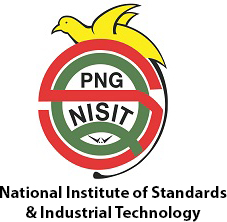




One of the key functions of the Technical Standards Division is the formulation of the PNG Standards. PNG Standards are developed, reviewed and maintained through NISIT Technical Committees comprising technical experts, academics an professionals actively involved through the voluntary participation in those (technical) fields of standardization. To date, the formulations of the PNG Standards are facilitated through the TCs under the guidance of their respective Secretariats. The respective Secretariat Desks are maintained by the Technical Standards Executive Officers.
| NISIT Technical Standards Committee | Scope of Standards Development cover the following Areas | Number of PNG Standards Established to Date |
|---|---|---|
| Biological (Agriculture, Food, Medical) Standards Committee (BISC) | Oversees to all Standards in the area of Agriculture, Medical Sciences & Technology, Food Sciences & Technology, Biological Sciences & Technology | 117 |
| Chemical Standards Committee (CHSC) | Oversees to all Standards in the area of Chemicals and Chemical Materials, Technology and Application | 147 |
| Construction & Building Standards Committee (COSC) | Oversees to all Standards in the area of Architecture, Design, Construction and Building Industry | 122 |
| Electrical Standards Committee (ELSC) | Oversees to all Standards in the area of Electrical & Electronics Technology and Application | 186 |
| Mechanical Standards Committee (MESC) | Oversees to all Standards in the area of Mechanical Engineering Application and Testing | 281 |
| Certification Standards Advisory Committee (CSAC) | Oversees to all management systems Standards in the area of Quality, Environment, Safety, Food Safety and other relevant Conformity Assessment Standards & Guides | 10 |
| Testing Laboratory Accreditation Committee (TLAC) | Oversees to all Standards in the area of Laboratory Accreditation and Field of Testing and other relevant Conformity Assessment Standards & Guides | 5 |
| Units Standards Calibration Committee (USCC) | Oversees to all Standards in the area of Metrology and Measurement Technology & Practices | 50 |
| Other (Newly Established) Standards Development Committees (Working Groups) | Draft Tourism Standards Draft Timber Preservation Standards | 1 1 |
The Standard development processes embraces the notion that it must be seen to be ‘industry-driven’ or ‘user-driven’ and therefore must be driven by all stakeholders and users concerned. At present, the Institute facilitates the Standards development processes through two different approaches namely ‘Adoption Process’ and through the ‘In-Country’ stakeholder needs and or requirements.
The Technical Standards Division facilitates the formulation of most PNG Standards through the ‘adoption processes’. In this process, basically all international, regional and foreign national Standards are reviewed for adoption pending all necessary review inputs and comments. The process may enabled adoption ‘in total’ or ‘partial adoption’ of either the foreign National Standard or International Standard. Currently, most PNG Standards are primarily adopted in total from ISO, IEC and Australian Standards including other recognized Foreign Industry recognized Standards (e.g., American Society for Testing and Materials [ASTM]).
In-country developed Standards generally reflect the notion of Standards being developed from within the national context and intention specifically tailored to address and capture ‘in-county’ conditions, needs and requirements. These Standards are developed from within the respective in-country sectors with involvement from all the domestic-based experts and professionals and all stakeholders concern.
Of the two approaches, Standards developed or adopted either from foreign National Standards and International Standards must be consistent to the Government’s Policy and Commitment to International Regional Trade Agreements and Arrangements. This must also be consistent with the current National Policies on Industrialization, Agricultural, Social, and Environmental and Safety needs. Consistency must be demonstrated in all other commitments in bilateral and multiple trade arrangements.
Powered by CloudcodeDisclaimer Terms & Conditions
